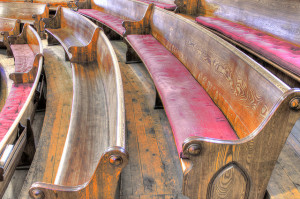
Pew Research Center continues to be a leader in providing research and commentary on matters of faith that matter. During 2014 they published 150+ reports and 600+ blog posts considering what is happening in the USA and the world. At the close of the year they reviewed this massive body of work and created a list of 14 facts they “found particularly striking, as they illustrate some major shifts in our politics, society, habits or families.” The list includes two religious items:
- Over the last twelve years Americans have increasingly felt that religion is losing its influence in American life. The percentage of Americans expressing this view has increased from 52% to 72% from 2002 to 2o14. Further, in the latest poll only about 1 in 5 (22%) of Americans feel that religion is currently increasing its influence in America. (This trend is supported by Gallup data as well. For more on that read my post.)
- The area of the world with more Catholics than any other, Latin America, is experiencing a significant decline in Catholicism. From 1970 to 2014 the percentage of Catholic Latin Americans declined from 92% to 69%. (I wrote about this trend shortly after Pew released their data.)
So What?
Both stories share something significant in common: data showing that Christianity is not as powerful as it once was. Fewer people are self-identifying as Christian in many parts of the world and religion does not seem to have the same influence on the culture that it once did. Here in the United States the nones (religiously non-affiliated) continue to grow and religious practices such as attending worship continue to decline. In American Religion: Contemporary Trends (2010) sociologist Mark Chaves summarizes the overall trends in religious believing, behaving and belonging with one general conclusion: “no indicator of traditional religious belief or practice is going up. There is much continuity and some decline (p.110).
Most people reading this blog are active adherents of a religion, and the vast majority of that group is Christian. How can those who seek to follow the Way of Jesus benefit from a deeper understanding of culture, especially our own American culture that has for some time been trending toward less religion and religion having less influence on culture? Share any ways in which your efforts to better understand these shifts have helped you deepen your own religious commitments and/or help your religious community thrive despite the overall decline.